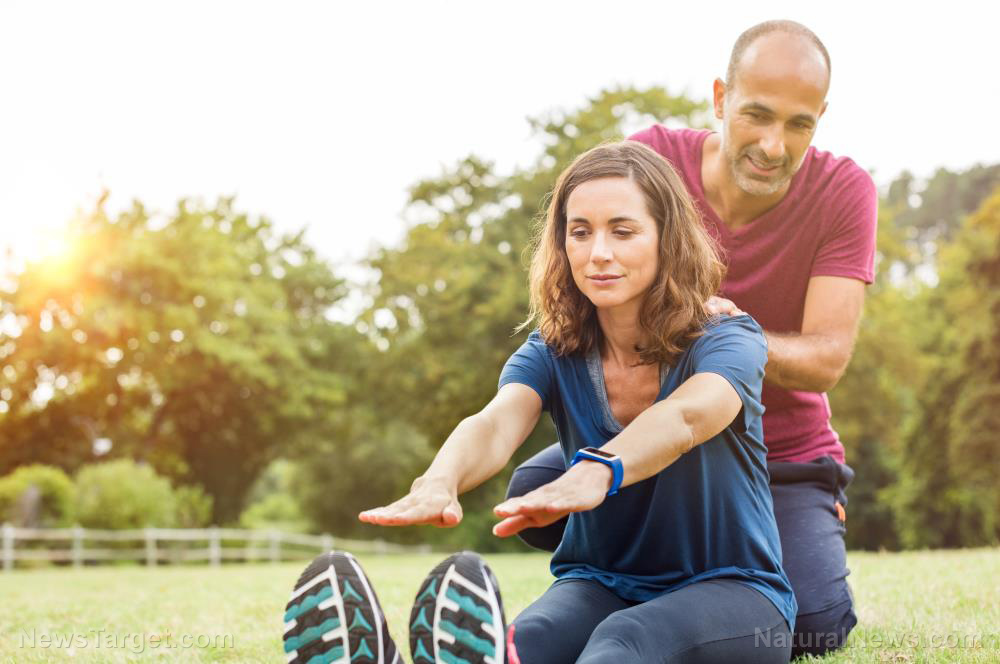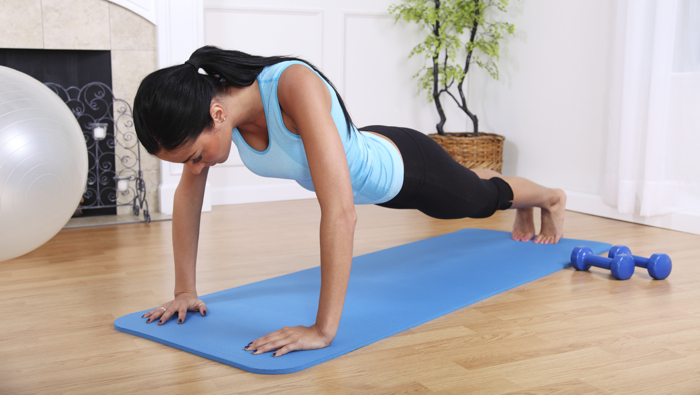Exercise can delay the development of Type 1 diabetes
12/08/2018 / By Zoey Sky

When a person has Type 1 diabetes, they are unable to produce insulin, which the body needs to manage blood sugar. But according to a study led by researchers from the University of Birmingham, individuals with this lifelong condition can delay its progression through regular exercise during the first few months of diagnosis.
If left untreated, Type 1 diabetes can make your blood glucose levels skyrocket. The condition can also increase the risk of severe complications, like blindness and kidney disease. In the U.K., at least 4.6 million people have diabetes, and about 10 percent of them have Type 1 diabetes.
Exercise and the “honeymoon” period of diabetes
Findings from the study, which was published in the journal Diabetic Medicine, revealed that volunteers who followed an active exercise regime after Type 1 diagnosis were able to extend their partial remission, or the “honeymoon” period, by five times, unlike those who didn’t exercise. (Related: Scientists look at the role of antioxidants in lessening the occurrence of Type 1 diabetes in young women.)
Researchers noted that this is the first study of its kind to analyze the effects of physical exercise on the “honeymoon” period in individuals who have recently been diagnosed with Type 1 diabetes.
The results of the study implied that, in the long term, exercise during the first few months of diagnosis could help improve blood glucose levels. People with diabetes who exercise can also reduce hypoglycemic attacks and the risk of long-term complications like neuropathy and retinopathy.
Diabetic neuropathy is a severe and common complication experienced by people with Type 1 and Type 2 diabetes. This condition involves nerve damage caused by uncontrolled high blood sugar levels. Meanwhile, retinopathy occurs when the blood vessels of people with diabetes are damaged. Like neuropathy, people with either Type 1 or Type 2 diabetes may develop this condition, especially if they have a long history of uncontrolled high blood sugar levels. According to the National Eye Institute, untreated diabetic retinopathy is one of the most common causes of blindness in the U.S.
At least 60 percent of adults newly diagnosed with Type 1 diabetes go through a “honeymoon” period, which means that some beta cells in their pancreas are still working. During this time, their body is also still sensitive to insulin.
The researchers observed 17 people from three clinics in the U.K. All of the volunteers were all recently diagnosed with Type 1 diabetes, and they reported that they were doing significant levels of exercise.
The 17 volunteers were then matched with other individuals who were also recently diagnosed with the condition. The members of the second group were within the same age group, sex, and weight, but they didn’t exercise at all. The researchers discovered that those who exercised went through a “honeymoon” which lasted five times longer, or 33 months on average, compared to those who didn’t exercise (six months).
Dr. Parth Narendran, the lead author of the study, noted that the study data highlights the importance of exercise for individuals who have newly been diagnosed with Type 1 diabetes. Dr. Narendran, who is also from the University of Birmingham’s Institute of Immunology and Immunotherapy, said that regular exercise can help prolong the “honeymoon” phase by combining the body’s improved response to insulin and the preservation of the function of insulin-producing cells in the pancreas.
He concluded, “This could have important benefits in people with type 1 diabetes, including improved blood glucose control, less episodes of [hypoglycemia] and a reduced risk of diabetes-related complications.”
To learn more about other natural ways to manage the symptoms of Type 1 diabetes, visit DiabetesScienceNews.com.
Sources include:
Submit a correction >>
Tagged Under:
diabetes, diabetes prevention, diabetes risk, diabetes risk factors, diabetes risk reduction, diabetes symptoms, exercise, men's health, natural cures, physical activities, regular exercise, type 1 diabetes, weight loss, wellness, women's health
This article may contain statements that reflect the opinion of the author
RECENT NEWS & ARTICLES
COPYRIGHT © 2017 MENS FITNESS FOCUS




















